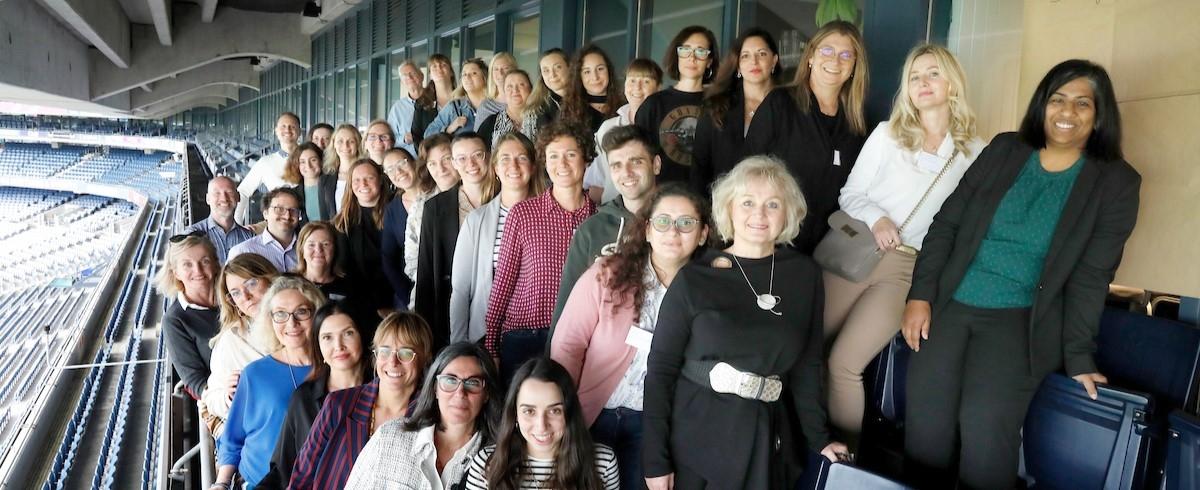
Onsite visit to Dublin, Ireland
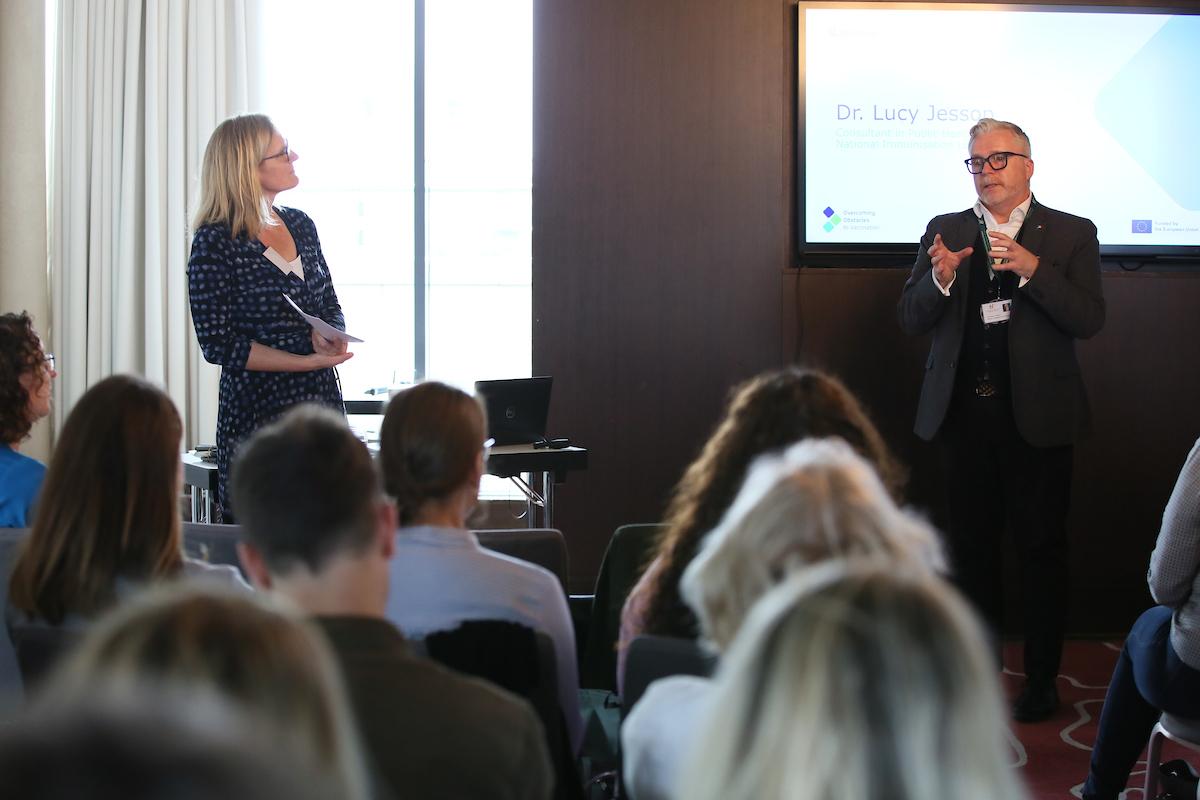
Introduction
The fifth and final on-site visit for the project “Overcoming Obstacles to Vaccination” took place in Dublin, Ireland from 4 to 6 October 2023. The focus was on a pilot study which offered the flu (influenza) vaccine to children in three primary schools. The target population were children and young people aged 2 to 17 years.
The goal of this visit was to:
- gather insights into the Irish practice of offering the influenza vaccination to children in three primary schools and learn from its success
- foster mutual learning by providing a space for exchange of knowledge and experiences
- develop ideas on how health professionals from Member States can transfer the practice to their countries
As part of the visit, the Irish National Immunisation Office of Health Service Executive (HSE) was awarded a certificate of exemplary practice from the European Health and Digital Executive Agency (HaDEA).
Offering the vaccine to children in three primary schools
Aim
In Ireland, the National Immunisation Advisory Committee (NIAC) recommended influenza (flu) vaccination for all children aged 2-17 years during the 2021-2022 seasonal influenza programme.
The aim was to protect children from influenza-related complications, reduce transmission within the community, and safeguard those at higher risk of severe disease. The Live Attenuated Influenza Vaccine (LAIV) was recommended for children and young people in this age group, unless contraindicated.
Although children aged 2-17 years are eligible for the free HSE nasal flu vaccine, uptake has been relatively low (below 20%) in the community. To address this issue, a pilot study was conducted to evaluate the impact of administering the LAIV in primary schools. The school setting was chosen based on strong international evidence suggesting that such settings increase vaccination uptake and are safe for vaccinating large numbers of pupils. Moreover, the Schools Immunisation Programme in Ireland has several well-established initiatives in which vaccinations are offered, including Measles, Mumps, Rubella (MMR), Tetanus, Diphtheria, Pertussis, Polio (DTaP/IPV), Human Papillomavirus (HPV9), and Meningococcal A, C, W, and Y (MenACWY).
The pilot project was conducted in collaboration with Community Health Operational (CHO) teams, each team partnering a local primary school. Three schools participated in the study, offering LAIV vaccinations to a total of 587 children from diverse geographic areas.
Actors involved and implementation
The National Immunisation Office is responsible for managing vaccine procurement and distribution, developing training and communication materials for the public and for health professionals engaged in all National Immunisation programmes in line with Department of Immunisation policy. All information on immunisation is evidence-based and reviewed by a panel of immunisation experts from the Royal College of Physicians of Ireland – National Immunisation Advisory Committee (NIAC).
NIAC is a multidisciplinary body of health professionals that sets guidelines for policymakers within the Department of Health. NIAC develops evidence-based recommendations on immunisation guidelines, drawing on epidemiological data and international best practices.
The Health Services Executive (HSE) is the body implementing and operationalising Ireland's health services and programmes, including the vaccination programmes, as set out by the NIAC and the Department of Health. The HSE's National Immunisation Office oversees vaccine procurement and distribution, develops information sources and materials, and provides training to healthcare professionals.
Vaccination programmes are centrally planned at the national level and implemented through operational leads across the country. The Irish health system comprises nine Community Health Organisations (CHOs) and seven Hospital Groups. The school vaccination programme is implemented at regional level, through the mobilisation of local school immunisation teams. The National Immunisation Office (NIO) provides support for the pilot programmes, including the development of education and training materials, as well as clinical support.
Resourcing
The Department of Health funds vaccination programmes in Ireland and allocates the budget for vaccination policies, developed following the National Immunisation Advisory Committee's (NIAC) guidelines and recommendations. All the recommended child and adolescent vaccines included in the vaccination schedule are offered free of charge, covering both the vaccine itself and its administration costs. The vaccines given by the School Immunisation Program are free.
School vaccination programmes are conducted directly within schools, including schools for children with Special Education Needs (SEN). On the other hand, homeschooled children receive vaccination service through primary care. These vaccinations are administered by dedicated professionals, including doctors, general practitioners, practice nurses, and public health nurses, with nurses playing a pivotal role in the vaccination efforts.
The Health Service Executive (HSE) school immunisation team annually delivers consent packs to parents/guardians of school children. The consent packs include:
- letter from the National Immunisation Office
- information about the vaccines the child will be offered
- consent form and envelop to return the completed documents.
The information on the child’s consent form is added to the Health Service Executive (HSE) school immunisation system.
Funding of €10,000 was made available for this pilot, which was used for clinic set-up costs, vaccine administration costs, project support costs and a promotional campaign to support the pilot programme.
Results
Three primary schools participated in the pilot programmes. One was a newly established school with pupils from junior infants to fourth year (aged 4 to 10 years) while the other two schools had pupils from junior infants to sixth year (aged 4 to 12 years). All students in each school were offered the LAIV (Total N=587).
Overall uptake of the LAIV in this pilot was 63.9% (375/587). Within the three schools the uptake ranged from 59.3% to 68.3%.
Uptake was highest (69.1%) among those in the second year (pupils aged 7 to 8 years). Among the school populations, 12.4% (73/587) reported that they had received the flu vaccine in the community from their GP or pharmacist. The overall uptake in the total school populations where LAIV was offered was 76.3% (448/587).
17.5% (103/587) of parents refused consent. In the case of the remaining children, who did not get vaccinated in school or in the community but whose parents did not refuse consent, either the parents failed to return consent forms allowing vaccination of their child, or the child was absent or otherwise unable to receive the vaccine on the appointed day.
Out of the total school population, 37.5% (220/587) of parents reported that their child had never received a flu vaccine before, one child had a contraindication to LAIV (0.2%), 4.9% (29/587) had underlying medical conditions and 0.9% (5/587) required a second dose of LAIV. However, the need for a second dose of LAIV was not assessed by all the immunisation teams.
13.5% (79/587) of parents receiving consent forms had to be contacted by phone prior to the vaccination session to clarify the information they had provided. No adverse incidents (such as vaccine errors) were reported.
The results of the pilot programme were promising, indicating a substantial increase in flu vaccine uptake within the school populations (63.9%) compared with the community (12.4%). This demonstrated the positive impact of the school-based approach on vaccination rates among the participating schools.
Overall, the findings from the pilot study provide valuable insights into the potential of school-based vaccination programmes to improve flu vaccine uptake among children in Ireland. These results contribute to ongoing efforts to enhance vaccination strategies and promote public health in the community.
For 2023/24 flu season HSE mobile vaccination teams will be offering the nasal flu vaccine to all children in senior infants in mainstream schools and all children in primary-age special needs schools across Ireland. This will be evaluated and expanded in future years with a view to offering the nasal flu vaccine to all primary school age children in school.
Outcomes of the visit
As part of the visit participants were provided an overview of the Irish Health System and the Health Service Executive Health Protection Strategy (2022-2027). A number of workshops, designed to facilitate reflection and evaluation, enabled attendees to explore the Irish health and immunisation system, with a particular focus on the exemplary practice of the school vaccination programme for flu immunisation in primary schools.
Participants identified several strengths including accessibility, operational efficiency, inclusivity, flexibility, well-managed logistics, and the evidence-based, multidisciplinary approach. Participants identified the need for an opt-out consent model and further development of processes, particularly the administration of data collection and reliance on paper-based consent forms. The practice offers several opportunities for developing similar schemes, notably the integration of health education into vaccination initiatives and the expansion of the range of vaccines offered. Linking health and school systems to enhance service delivery and offering catch-up opportunities for additional vaccines is a key strength identified in this practice.
An “Impact Canvas” was used to guide participants in evaluating the potential transfer of the practice to their own local health system and infrastructure. Several critical steps for the successful implementation of a school vaccination programme were identified. These include developing materials such as consent forms and information leaflets; planning a structured rollout schedule; establishing a governance structure; defining procurement processes, including vaccine supply; and outlining the programme's scope and timeframe. Moreover, such a programme involves the recruitment and training of staff, financial planning, the definition of monitoring and evaluation strategies, and fostering the political will to support such initiatives.
Participants appreciated the personal interactions with other delegates attending experts from the programme and staff from the clinics. The on-site visit provided an opportunity to gain a new perspective, especially through visits to the vaccination clinics. The most mentioned lesson taken away from the visit was the holistic and multidisciplinary/cross-sectoral approach illustrating the importance of collaboration and communication between all partners. Several participants stressed that implementing immunisation programmes in schools was a good way to increase immunisation rates.
Find out more about the Irish Health System and vaccination progammes:
Websites:
-
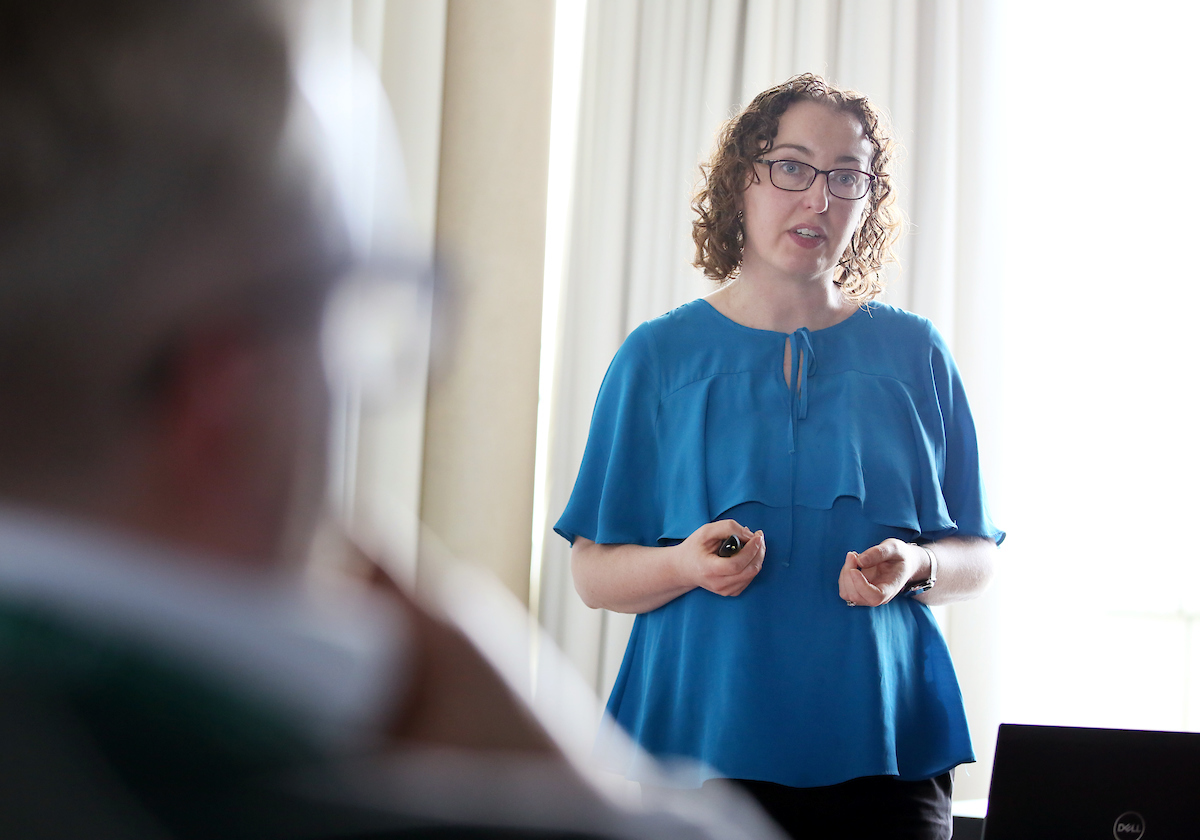
Speaker giving a presentation. -
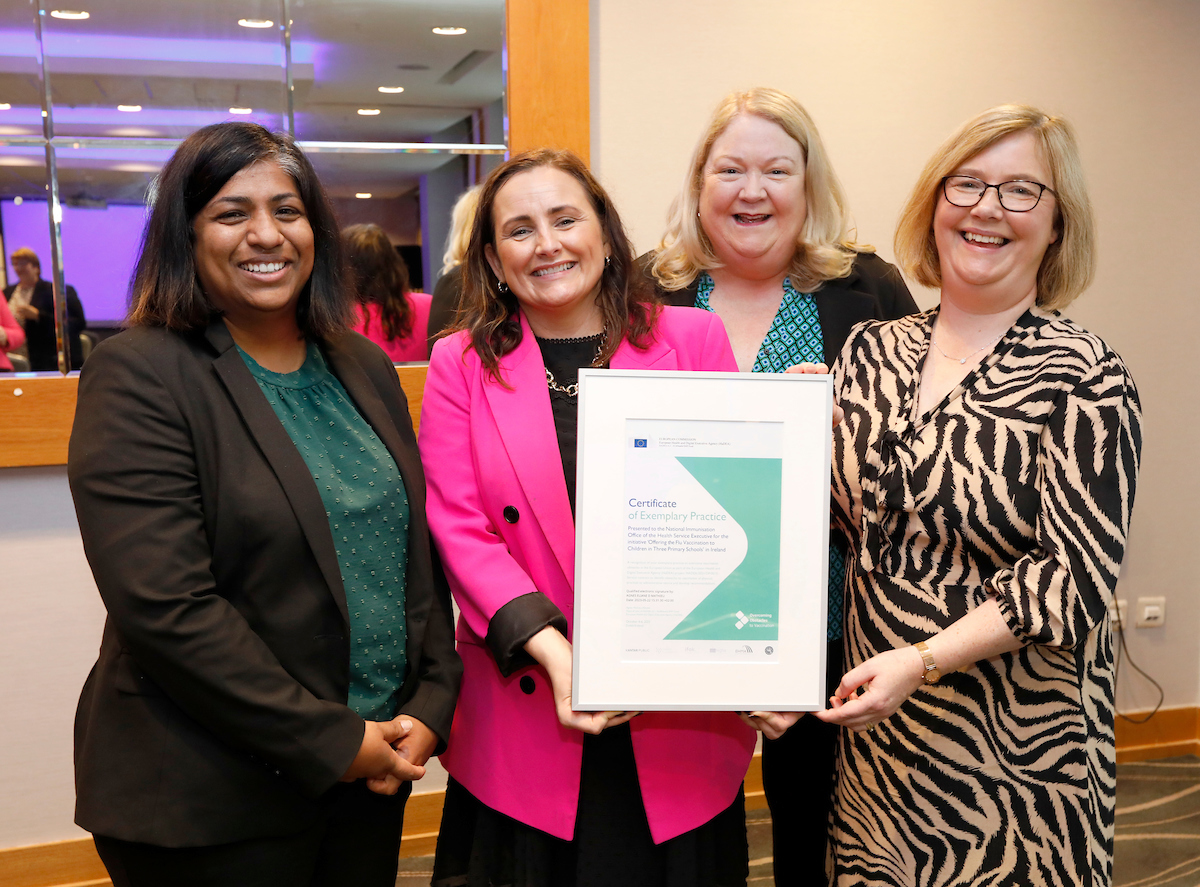
Award ceremony at the Dublin onsite visit. Four speakers showcasing a certificate. -
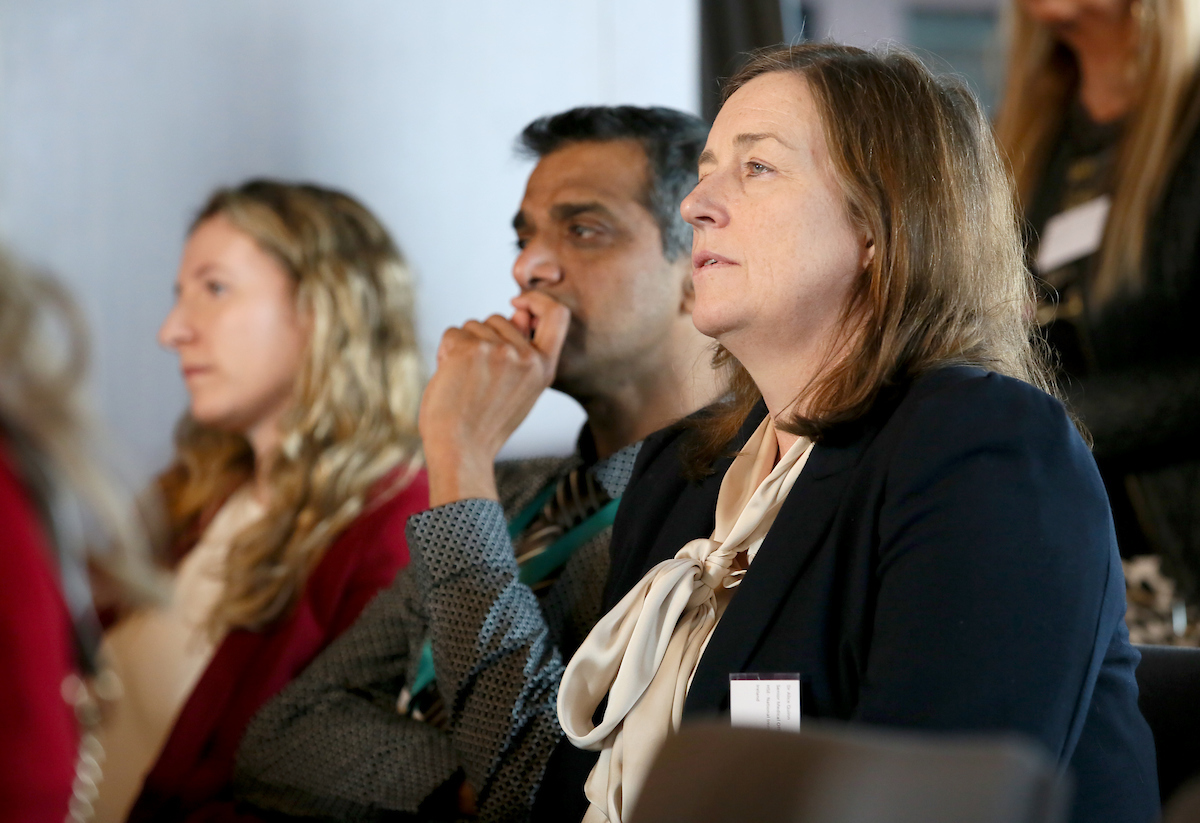
Participants listening a presentation during the onsite visit in Dublin, Ireland. -
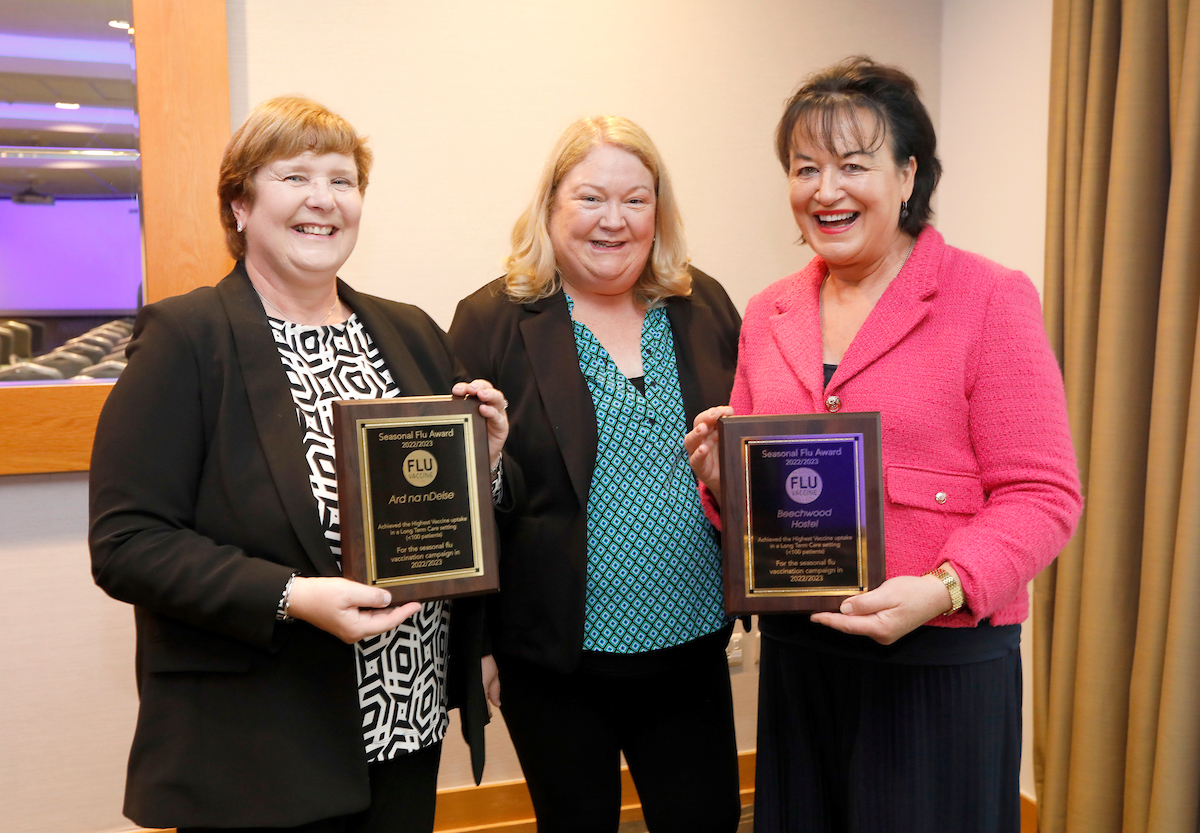
Seasonal flu award ceremony at the Dublin onsite visit. Three delegates showcasing a certificate. -
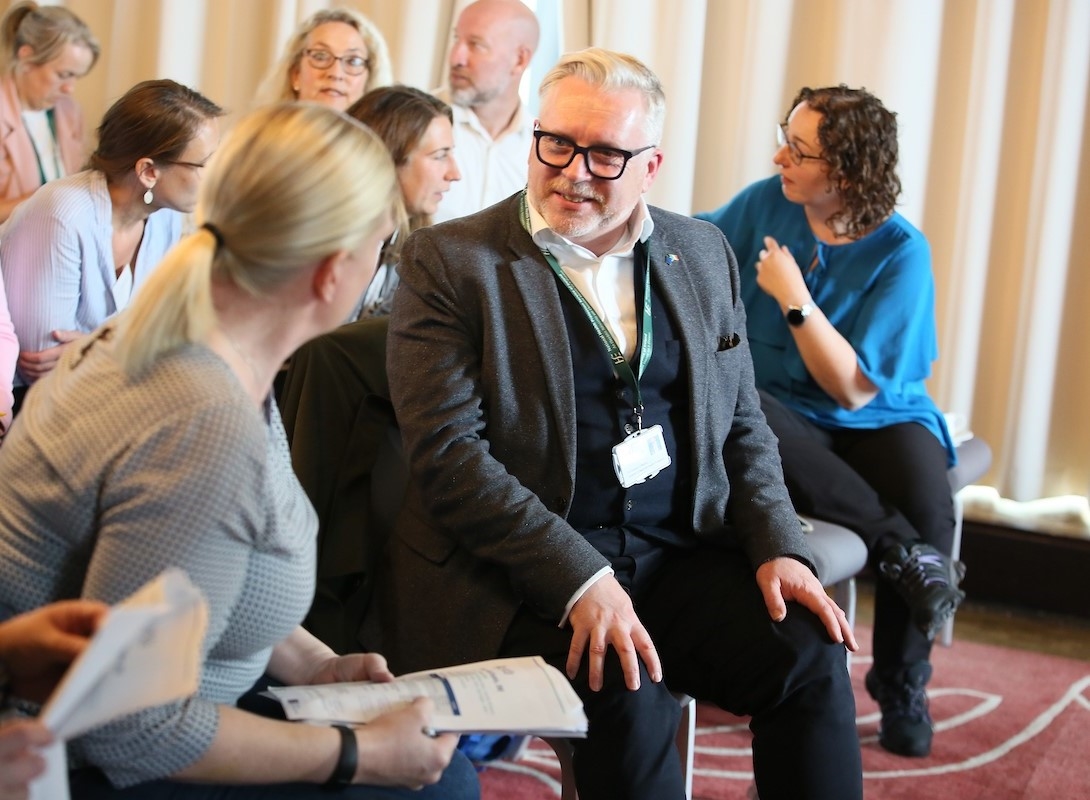
Speakers discussing during a presentation on the onsite visit in Dublin, Ireland. -
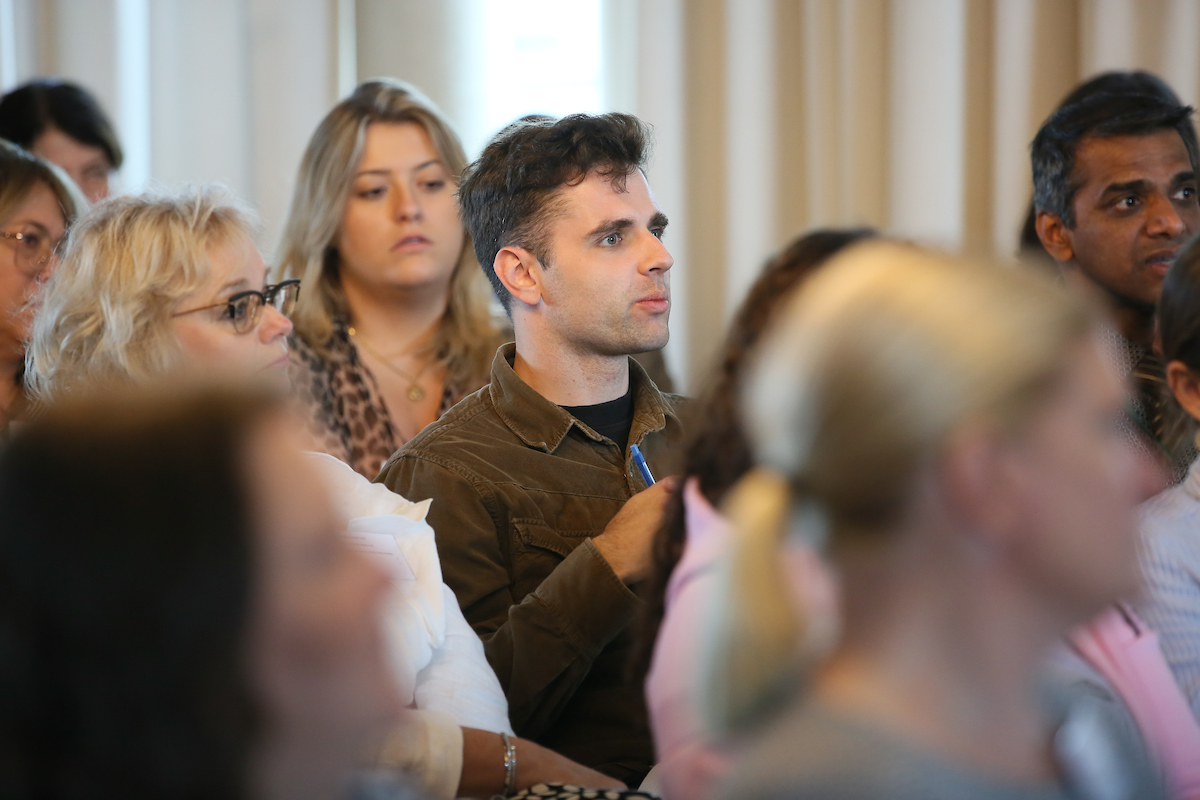
A participant talking during one of the presentations on the onsite visit in Dublin. -
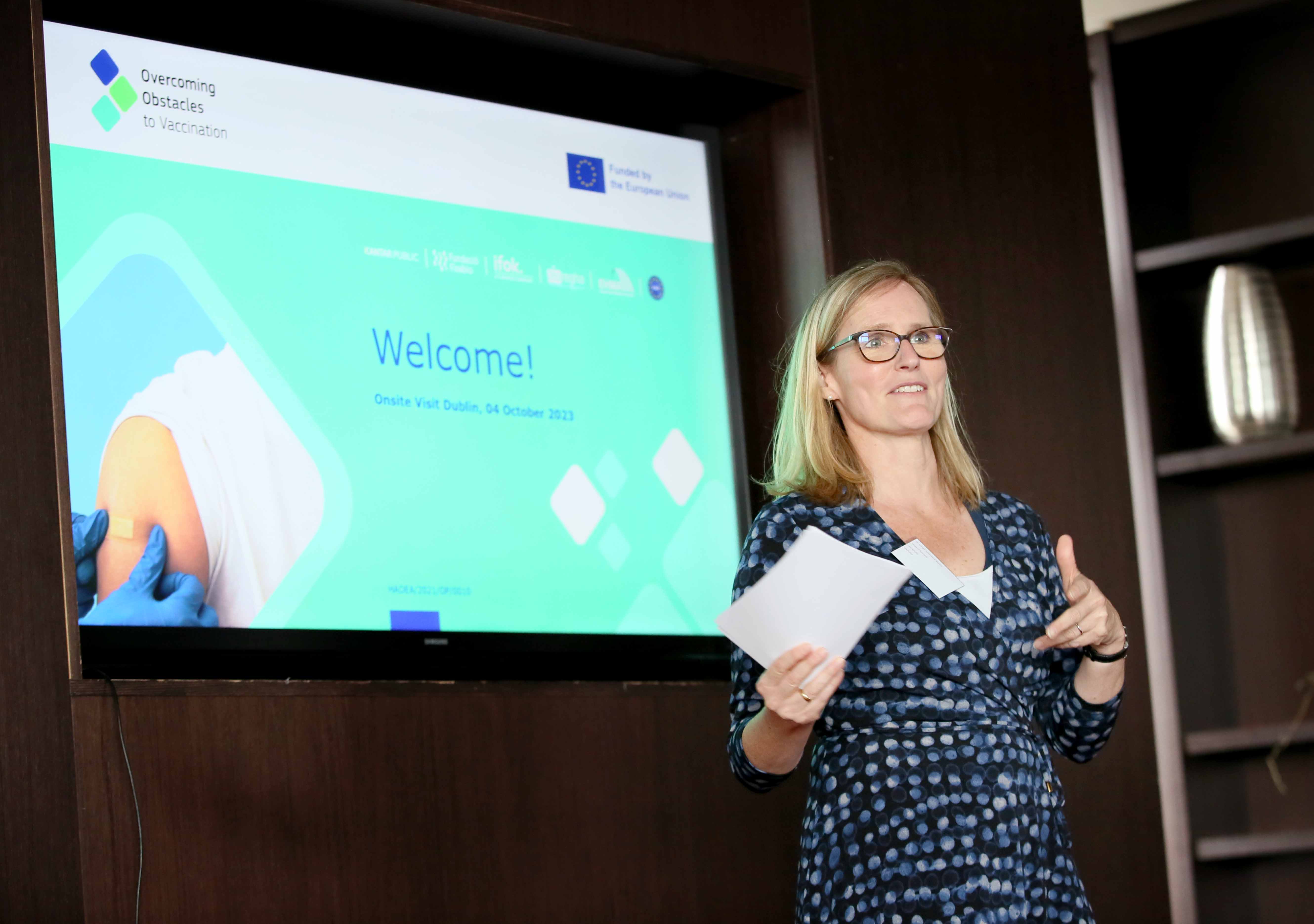
Dr. Margit Aufterbeck giving a presentation during the onsite visit in Dublin, Ireland. -
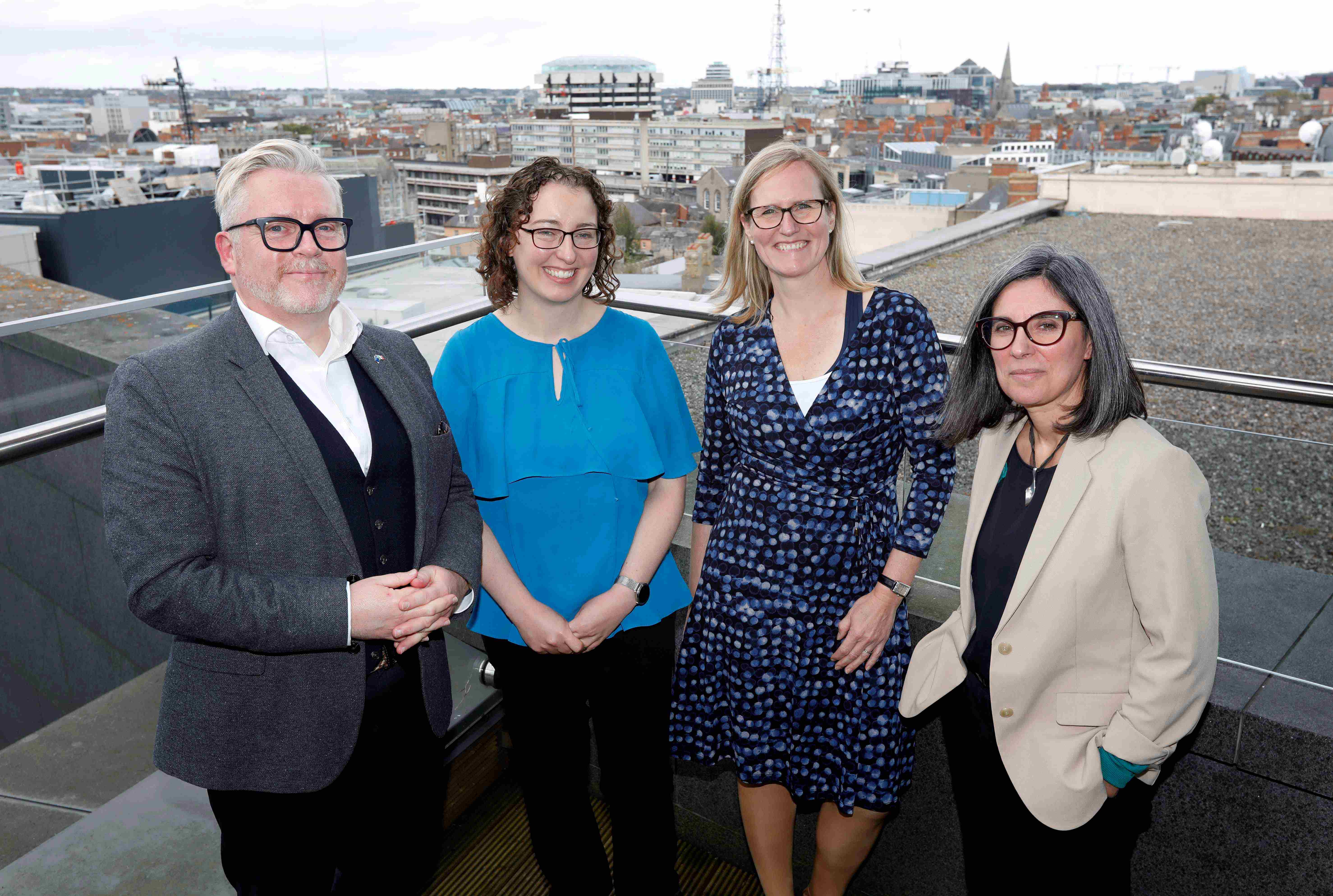
Speakers and organisers of the onsite visit talking during a break in Dublin.
